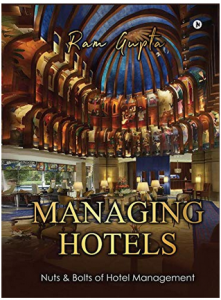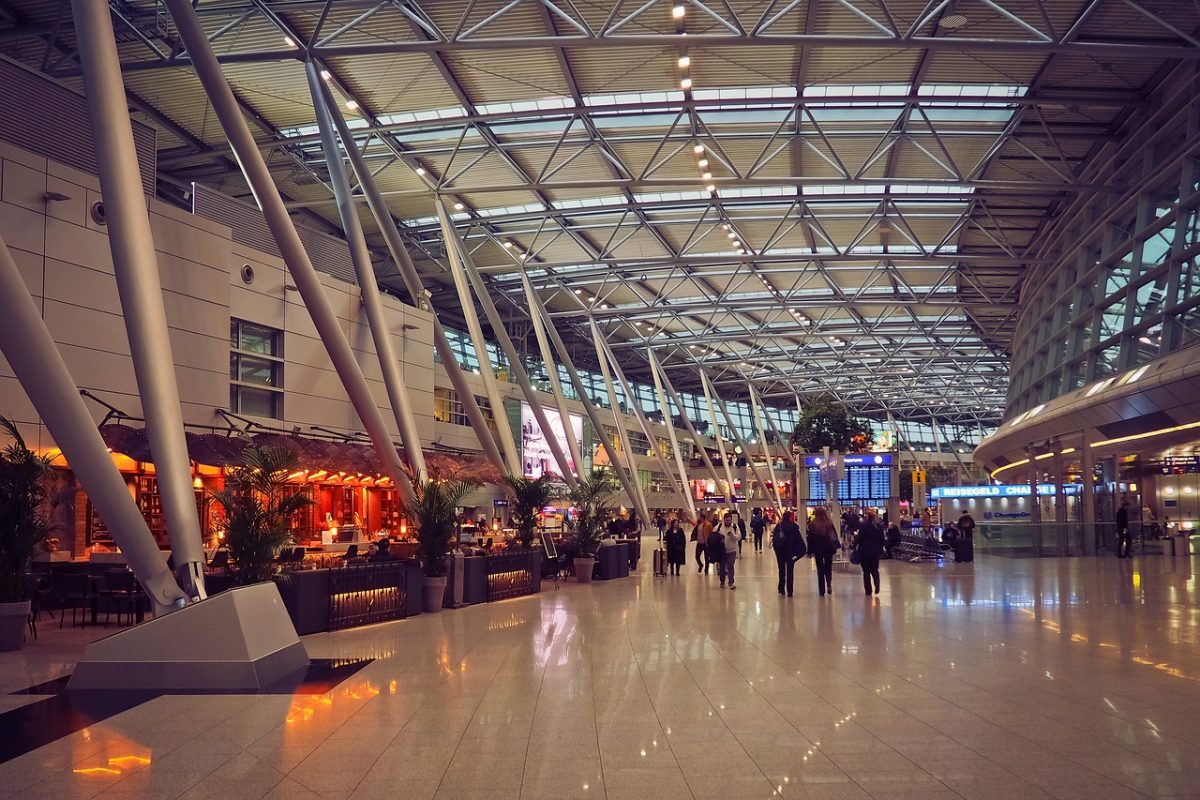As much the travel industry has suffered due to the travel restrictions placed in the wake of the COVID-19 pandemic outbreak, it is set to bounce back now. With people claiming the period between October-February as the ‘Litmus test’ for the industry, it is yet to be seen if the damage received will be compensated quickly or if this is just a step in a long journey of bouncing back. Whatever be the case, the travel industry needs to address one very important issue in an upcoming couple of months – the hesitation of nervous travelers.
People who have been cooped up inside their homes are looking to travel after a long period. But they are faced with a dilemma. On the one hand, their willingness to travel is pushing them to start their journeys, while on the other hand, their skepticism with regard to the dangers of COVID-19 is still holding them back. This hesitation exists not just with regards to the places they’re planning to visit, but also in their modes of travel. In an official survey by PwC, a little less than half of the people adamantly stated that they were in no mood to fly to their travel destination. This hesitation is not just against airlines, but against all public modes of transport, public accessible places, and local residences like homestays and BnBs.
If the tourism industry is to rope in these nervous travel enthusiasts, they must take steps to provide them with enough assurance and credibility, thereby assuring them and eliminating all hesitation. This will help the travel industry take a step towards bolstering their revenue and attracting more travelers through word of mouth. But how can the industry build again the same trust they once enjoyed?
Personally, I believe that the industry must categorize different travelers according to the hesitation they have. Only then can they understand how to win back their trust. Let’s take a look at the type of travelers and the solution that the tourism industry can provide to them.
Bleisure – The Business Traveler
One of the most revenue-generating travel modes for the industry, business travel, has been partially or completely halted due to the COVID-19 outbreak. Many managers and employees have had their reservations regarding travelling for the sake of work, even if there was complete assurance from the company’s end, implying that they were doubtful about not just about the accommodation or amenities, but also the hygiene and safety measures.
However, despite the slog, business travel has to start eventually. And while we still don’t have any credible cure for COVID-19, we’ll have to abide by something we can – Precaution.
India has been ranked second under bleisure traveling (business plus leisure), with more than 72% of Indian travelers extending their business trips according to a report by Booking.com. As companies develop contingency plans to avoid travels with telecommunication and video conferences, essential business travel requires precise definition about travel provisions of an employee.
From the company’s end, this includes more outspoken rules of business travel that are understood by all. People should be briefed on what’s covered during the trip and what’s not. In addition, there should be clear indications of what people should do if they don’t feel safe in between the trip.
As far as the hotels are concerned, they must make sure that the travelers are intimated on all kinds of security measures used in the hotels. They should be provided with a clear list of their protocols. Hotels should also appoint a go-to person, readily available if a business traveler needs any kind of help.
The No-Fly Traveler
As evident from surveys by top travel agencies, many travelers are hesitant in choosing flying as their means of travel. As per an official report, as much as 40% of the people planning to travel were sure that they weren’t going to fly. And those who weren’t, ranked domestic flight as a more credible source of travel than international flights.
Airlines, too, have been impacted hugely because of the COVID-19 outbreak. Travel restrictions, coupled with traveler hesitation, resulted in tremendous loss of revenue. And though travel has kicked off again, people shying away from flying is bound to do no good to the airlines.

The first and the foremost move with which airlines can attract travelers is a reduction in fares. Now I know that this is not fair for small airlines with no reserves, but this is one of the most foolproof methods to get travel by air on track again. Another way to tackle this mental block is by getting the safety and hygiene standards of the airline approved by an authentic and trusted body, preferably the government or trusted health organizations.
However, the hesitation raises a very important question. If people are not willing to fly, they’re less likely to travel to longer places. Thus, the airlines must also target to run as many domestic flights as possible. And then, as the travel locations get certified by a lot of travelers, they can focus on international flights too.
The Local Traveler
As evident from the points I’ve made above, people are hesitant to travel long distances right now, especially when they’re not in control of their modes of travel. If asked for a preference, there’s a good chance that people will prefer local destinations over foreign ones. While this is a blow to foreign travel, local governments can use this as the perfect opportunity to focus more on local destinations. For example, people in India will be more likely to travel to local destinations like Manali, Srinagar or Kerala (and they should be encouraged, too). This will help them get over the reservation of travel and make them comfortable with the idea of travelling post-COVID again. Companies should also provide safe sanitizing solutions (like sanitized parking services) for their cars and local modes of transports.
As far as staying is concerned, local stays, that are less favoured than big hotel chains, should be authenticated in collaboration with a trusted organization. They should let people know, through their social media handles and marketing mailers, that they are ready for travelers. Their security protocols, cleaning protocols and credibility should be visible enough for more and more people to notice. Big hotel chains, too, should aim to attract local travelers by providing discounted rates and striving for advanced safety measures like no-contact stay and contact-less chauffeurs.
Health Care-First Travelers
People are aware that their travel during these times comes with certain risks, be it because of local transport, public bars or restaurants. And thus, they are more likely to go for destinations that have prominent healthcare facilities. With no vaccine around the corner, people are relying solely on prevention and precaution. However, they are more likely to pick destinations that have moved past their peak of COVID-19 infections and have adequate testing and hospital capacity.

Hotels can make their customers feel more safe by tying up with local hospitals for routine checkups and tests. They can appoint individuals to get travelers tested constantly by local hospitals that are credited by authentic bodies. They can also suggest sightseeing destinations that have taken strict precautions against the spread of COVID and done their due diligence to safeguard tourists. And all of this should clearly reflect and be publicized on their social media.
Credibility-First Travelers
Many hesitant travelers in these times believe in the names of trusted big brands for their safety. They need an authentic body to ensure them of their travel plans, assuring them of the safety measures. Thus, big hotel chains and airlines should make sure that they get enough visible safety protocols – PPE wearing individuals, constant sanitization and no-contact services. They should also aim for certifications from big names such as the CDC, WHO and local governments, as their assurance would mean a lot for the travelers.
Information is also going to play a very important part here as people are relying on the communications they receive, from hotels or airlines themselves about their safety standard. Hotels target their frequent customers and stay in constant contact with them through mails and calls, providing them constant updates on the safety of traveling. This will let the travelers know that the hotels actually care for their safety, instead of this being just plain and simple business move.
As the tourism and hospitality industry rises again to accommodate travel enthusiasts, it is faced with many challenges. From keeping safety standards to an impeccable best to motivating nervous travelers to overcome their hesitation, the list is quite long. However, keeping in mind the fact that people have been cooped up inside their homes for so long, and that the government and travel solicitors have adapted to one of the best hygiene standards in a long time, the task feels doable. The road to the ‘re-rise’ of traveling might be tough, but not unimaginable. We’ll just have to be patient.
Ram Gupta is a hotel management graduate. He is a certified Hotel Administrator from U.S. and MIH from U.K. He has over 40 years of sound experience in the Hospitality industry in India, Dubai, U.K, Europe and Japan and is well versed with all areas of business including acquisitions, mergers, joint ventures, diversification, strategic planning, development and operations. He has been associated with over two dozen luxury and boutique hotel projects and has launched two hotel chains in India. He is currently an independent hotel consultant and could be contacted at ramgupta@bcgglobal.com. Website: www.bcgglobal.com
HOSPITALITY INDUSTRY BOOKS BY RAM GUPTA


AVAILABLE FROM
ALSO ON,-
AMAZON KINDLE, KOBO, GOOGLE PLAY & i BOOKS
BOOK STORES IN INDIA
COFFEE CUP – SECUNDERABAD, CROSSWORD – BANGALORE, PUNE, JAIPUR & NOIDA, GANGARAMS – BANGALORE, HIGGINBOTHAMS – BANGALORE & CHENNAI, MODERN BOOK STORE – TRIVANDRUM, ODYSSE – COIMBATORE, OXFORD – DELHI & KOLKATA, STORY BOOK STORE – KOLKATA, TITLE WAVE – MUMBAI, WRITERS CAFÉ – CHENNAI

